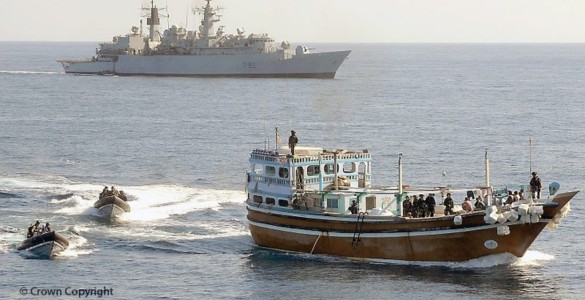Indo-Pacific Strategy and Diplomacy
The Indo-Pacific Strategy is largely shaped by regional great powers such as the United States, India, Japan, and Australia, reflecting their strategic interests in security and defence across the Indian Ocean and the Pacific Ocean. Small states like the Maldives, Sri Lanka, and the Pacific Islands have had limited influence in formulating the broader regional strategic frameworks. Nevertheless, these states have increasingly voiced concerns about the constraints such externally driven security architectures may impose on their sovereignty, development priorities, and regional agency.
Despite their limited role in shaping grand strategic narratives, small states play a critical role in regional and global governance, particularly in areas such as climate change, sustainable development, and maritime security. Their unique geopolitical positions, local knowledge, and normative influence are essential in shaping inclusive and responsive foreign policy and security dialogues. Recognising this, the Centre for Security and Strategic Studies (CSSS) focuses on advancing research, policy engagement, and diplomatic initiatives that foreground the interests and perspectives of small states. Through this work, CSSS contributes to a more balanced and representative Indo-Pacific discourse, ensuring that the voices of smaller nations are integrated into broader regional strategies.




Indo-Pacific Strategy and Diplomacy
The Indo-Pacific Strategy is largely shaped by regional great powers such as the United States, India, Japan, and Australia, reflecting their strategic interests in security and defence across the Indian Ocean and the Pacific Ocean. Small states like the Maldives, Sri Lanka, and the Pacific Islands have had limited influence in formulating the broader regional strategic frameworks. Nevertheless, these states have increasingly voiced concerns about the constraints such externally driven security architectures may impose on their sovereignty, development priorities, and regional agency.
Despite their limited role in shaping grand strategic narratives, small states play a critical role in regional and global governance, particularly in areas such as climate change, sustainable development, and maritime security. Their unique geopolitical positions, local knowledge, and normative influence are essential in shaping inclusive and responsive foreign policy and security dialogues. Recognising this, the Centre for Security and Strategic Studies (CSSS) focuses on advancing research, policy engagement, and diplomatic initiatives that foreground the interests and perspectives of small states. Through this work, CSSS contributes to a more balanced and representative Indo-Pacific discourse, ensuring that the voices of smaller nations are integrated into broader regional strategies.
Human Security and Gender
Security today extends beyond traditional military threats, encompassing a broad spectrum of non-traditional challenges that cannot be addressed solely through the use of force. Human security and environmental risks—such as climate change, sea level rise, natural disasters, pandemics, and food and water insecurity—are increasingly central to contemporary security discourse and policymaking. The Maldives, as a low-lying island nation, is acutely vulnerable to climate-induced threats, particularly sea level rise, which poses significant risks to its economy, political stability, and societal well-being.
These environmental challenges have elevated human security concerns to the forefront of national and regional agendas, necessitating the securitisation of issues traditionally considered outside the realm of security. For instance, gender-related vulnerabilities linked to climate change have been recognised as policy priorities in many small island states, including those in the Pacific. Economic security, particularly in sectors such as tourism, is also under threat due to environmental degradation. The COVID-19 pandemic further exposed the fragility of socio-economic systems, with lockdowns exacerbating existing vulnerabilities. Integrating socio-economic research into security analysis is essential for understanding the broader impacts of such crises. CSSS actively engages in research across these multidimensional security domains to inform policy and resilience-building efforts.
Military Tactics, Strategy and Grand Strategy
Small states maintain military forces, which play a vital role in safeguarding national security. In the case of the Maldives, the strategic importance of its vast maritime domain—comprising over 98 per cent of its territory—necessitates a security posture focused on non-kinetic and non-lethal threats. Transnational maritime boundaries intersecting Maldivian waters expose the nation to significant risks that threaten its economy and critical infrastructure, occasionally necessitating kinetic responses. Maritime piracy remains a persistent concern in the Indian Ocean, with the Maldives located near potential hotspots for violent incidents, including those linked to Somali pirate activity.
Although small states may lack the military scale of larger powers, their armed forces are essential for maritime surveillance, disaster response, and the protection of sovereignty. CSSS explores academic frameworks that examine the role of militaries in small states, with a focus on the broader implications for national security, socio-economic resilience, and regional influence. This includes analysing defence spending, political priorities, and development agendas, all of which shape the strategic posture of small states like the Maldives. Through such research, CSSS contributes to a nuanced understanding of how small state militaries can effectively address complex, multidimensional security challenges.